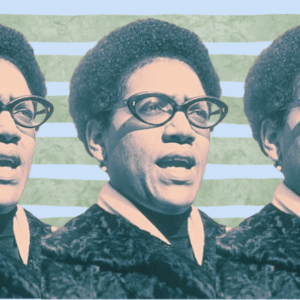
Will Self on What to Read: Canons to the Left, Canons to the Right, and Everything in Between
“As widely and as deeply as possible.”
Even if—as per my last essay for Lit Hub—we know how to read, there remains the equally vexed question of what we should read. If the 21st century is notable for anything much at all when it comes to literature—and I use the term in its broadest sense, as will become clear—it’s the spiking of formerly big literary guns, and the dismantling of what used to be understood as the canon. In truth, the canon was both a comparatively recent phenomenon—if by this is meant a collection of texts the reading of which was deemed essential if you were to consider yourself cultured—and never by any means the overbearing and fortified phenomenon its detractors love to hate and besiege.
This is not to suggest that prescriptivism isn’t a perennial when it comes to our reading habits—or that such categorical judgements haven’t been prejudiced by values and attitudes that many today find deeply unpalatable. Telling people what they should read is, very obviously, congruent with telling them where to go, and what seat they’re allowed to occupy on the bus.
Nonetheless, for those who view the very notion of the canon as inherently elitist, it’s worth noting that the phenomena mostly clearly implicated in its formation were the democratizing processes of the late 19th and early 20th century: the massive extension of free education—not just to little white proto-patriarchs, but to girls, and children from diverse communities as well—together with the technological improvements in the replication and dissemination of literary texts. Following this, the canon arguably became most salient precisely at the point when its foundations were already beginning to crumble by reason of such tectonic movements and technological changes. Meanwhile, its ideological battlements were under assault by a curious alliance of Feminists, structuralist and deconstructionist literary critics, together with the aggrieved intelligentsia of either minority groups, or newly independent nations that were formerly colonized by Western Europeans.
Put bluntly: the canon only really existed—in my view—as a genuinely culturally conditioning phenomenon for a few decades before it began to fire blanks. Prior to that there was an evolving literary culture that, by definition, was restricted to the literate. Its influence may have shaped general culture and values—but just as natural religion allows for far greater latitude than preachers of the vulgate would allow, so this proto-canon scarcely affected the cultural mores of the unlettered. In some ways the analogy would be between the Protestant Reformation and the inception of web offset printing combined with universal literacy: Just as the aim of the former was to make Divine writ accessible to all—so the latter was hell-bent on making the writ of humanity similarly ubiquitous.
The Book of the Month Club, the vast readerships for newspapers, and magazines such as Time or Reader’s Digest—these contributed to canon formation in the early years of the last century quite as much as the novelizing of Joseph Conrad or Virginia Wolf. The standardized teaching of literary criticism only comes into being in the 1900s with the schism within classical philology between the study of the meaning of literary texts, and that of their underlying linguistic structure. Yet in a few short decades people came—entirely paradoxically—to believe both in the undoubted existence of a literary canon, and its baleful effects on what we now call inclusiveness. Surely the only possible explanation for this was that many diverse people really were being told what to read by a group of people exhibiting considerably less diversity themselves.
To understand influence, or the relation of literary genres to one another you need to have absorbed sufficient quantities of text to make intuitive comparisons.
The paradox here is that the canon—inasmuch as it existed at all—was trumpeted by those engaged in its formation, as simultaneously an expression of cultural values particular to Western societies, and those viewed as somehow universal. We can blame the Enlightenment for this: its luminaries believed first and foremost in civilization’s “progress”—as they understood it—and this necessitated all the world’s cultures being remade in their favored image. This basic conflict: between the West and the rest resonates down the centuries, and is recast in each successive generation: the current culture war between those who wish university literature departments to be far more diverse in the works and authors they teach, and those who cleave to what they view as an unshakeable tradition being only its latest iteration.
Let me be clear, and Shakespearean: a plague on both their houses—both sides are, in my view, equally wrongheaded. The Traditionalists cannot circle their wagons around a prescribed/proscribed division that figures themselves as the all-wise Solomons without making the canon a synecdoche of the social and economic hierarchies as currently constituted; but neither can the Revolutionists retrospectively alter the canon to correct the prejudicial, purblind perspective of the past—to do so would be to enact a sort of cultural counterfactual: rendering the readers of today somehow magically altered in terms of their own acculturation. No longer will they view Shakespeare as the fount of a host of commonplace tropes and idioms in contemporary English—but rather look to previously obscured writers for these linguistic modes, thereby establishing quite a different culture.
Besides, the revolutionists are quite as prescriptive about what we should read as the traditionalists: for them, a literary diet of writers previously excluded from the canon by reason of sex, ethnicity, etc. is a necessary concomitant to—if not cause of—a more egalitarian society. Good luck with that one. For my own part, I sincerely believe that the culture wars currently underway are precursor of a more general Götterdämmerung: like it or not, viable cultures, while voraciously consuming other influences, nonetheless remain true to their own espoused values—rendering a genuine multi-culture a contradiction in terms. This is by no means to say that I don’t believe we should read as widely and as deeply as possible.
Indeed, I’d argue that in the current parlous situation such eclecticism and absorption is our principal prophylactic, protecting us from the blights and pestilences that surround our cultivated little enclaves. My own experience teaching at university level for the past decade has been sobering, as I encounter more and more students whose reading—regardless of which authors or works they’ve read—is simply insufficient, in terms of overall bulk, to allow them to understand such concepts as the Bloomian anxiety of influence, whether or not they’re able to figure the late critic as a reactionary defender of the canon.
To understand influence, or the relation of literary genres to one another you need to have absorbed sufficient quantities of text to make intuitive comparisons—while in order to lose yourself in a given work, you need to be able to get far enough into it in the first place. The multiple mediatized distractions that now howl to us from our handheld computers (formerly known as “phones”) militate against this level of engagement, as does the anxiety induced by events in the wider world, such as the Coronavirus pandemic. However, if my own arguments strike you as tendentious then let me share with you someone else’s insight, that of the English novelist David Lodge. His campus satire, Small World, published in the mid-1980s, features a cast of wannabe celeb academics jetting around the Anglosphere in a slipstream of signifiers and apercus. Yes—it was an innocent era, when such antics constituted the very essence of “culture.”
What are the social media if not the literary forms most central to the cultural life and collective social being of our age?
Anyway, early on the novel, the Morris Zapp character (based on the American literary critic, Stanley Fish), tells an anecdote concerning a party game played among the members of the English faculty at his university, in which they drunkenly admit to canonical texts that they haven’t read. One colleague duly conceded that he had no acquaintance whatsoever with Hamlet, and then—since the head of the department was present, and presumably less amused than the rest of the company—woke up the following morning to discover he’d been fired.
This neatly conveys the nature of the canonical under conditions of late capitalism: it elides with the forms of arcane knowledge and technical jargon that all professions rely on to effect closure in their given economic sphere. (Arguably, deconstruction as a literary-critical theory has gained traction more because of its impenetrable jargon, than its philosophical debunking of the possibility of textual veracity.) There’s this, and there’s also the commoditization of the canonical implicit in this episode—and indeed, in the entire marketization and commodification of culture that’s so marked a feature of the zeitgeist.
The newer mediums power to sell books that are, in part, displacing the codex at the core of our culture, means that what’s good for sales has to be figured as good for literature. Nowadays, getting into the canon is like relocating to one of those nice, safe, plague-free and largely white enclaves—such as New Zealand—where a million bucks, cash down, can buy you citizenship. In part this has to be because of the sheer volume of stuff being put into circulation—as Stalin so wisely observed, “Quantity has a quality of its own.”
Back in 2003, at the point where the world was reaching what I think of as “peak paper,” that moment before the full inception of bi-directional digital media (the technological assemblage of the internet and the web wirelessly configured), the Mexican academic Gabriel Zaid published a witty book-length essay provocatively entitled “So Many Books: Reading and Publishing in an Age of Abundance.”
Beginning with the chilling calculation that at the time he was writing a book was being published somewhere in the world every thirty seconds, Zaid went on—somewhat paradoxically—to argue that such an avalanche of paper in fact represented the ability of the medium to continue to shape the culture. Arguing that within such abundance there necessarily existed great diversity; and that such diversity in turn entailed multiple foci around which debate could circulate, he suggested that we not feel that worried about an aesthetic and intellectual climate in which important works nonetheless failed to find in excess of a thousand readers.
But of course, by 2003 the digital writing was already on the literal screen—if not behind the metaphoric pay wall—and Zaid’s further musings on the meaning of a literary culture in which far more people identified as, um, writers than readers, were in my view shadowed by the great perversion of publishing by means of a billion keystrokes that was already underway. For what are the social media if not the literary forms most central to the cultural life and collective social being of our age—a fact attested to more than slightly by the recent lifetime ban served on former US president, Donald Trump, by Twitter.
If we dismiss for once and for all the absurd notion that the difficulty or simplicity of a given literary text represents an axis parallel to that which—supposedly—runs from dead white men to the contemporary and woke (a supposition that’s insulting to all parties concerned), then we can liberate ourselves from the spurious notion that what we read will somehow—in Kafka’s rather mocking formulation—constitute “the decisive moment in human history.” Just as if we acknowledge the truth that what people actually read in practice are little gobbets of text pinging about in cyberspace—the lexical equivalents of sub-atomic particles with only liminal existence—we can stop believing that genre fiction (for example) is some kind of “guilty pleasure.”
All of which is by way of saying: read what the hell you like. In a literary culture in which a Booker Prize winner (Bernadine Evaristo) can give an interview to the Guardian newspaper in which she states that “life’s too short” for her to read Ulysses, clearly the old idols have fallen. But then, they haven’t been the old idols for very long. No, read what you want—but be conscious that in this area of life as so many others; you are what you eat, and if your diet is solely pulp, you’ll very likely become rather… pulpy. And if you read books that almost certainly won’t last, you’ll power on through life with a view of cultural history as radically foreshortened as the bonnet of a bubble car.
Will Self
Will Self is the author of many novels and books of nonfiction, including Great Apes; The Book of Dave; How the Dead Live, which was shortlisted for the Whitbread Novel of the Year; The Butt, winner of the Bollinger Everyman Wodehouse Prize for Comic Fiction; and Umbrella, which was shortlisted for the Booker Prize. He lives in South London.












